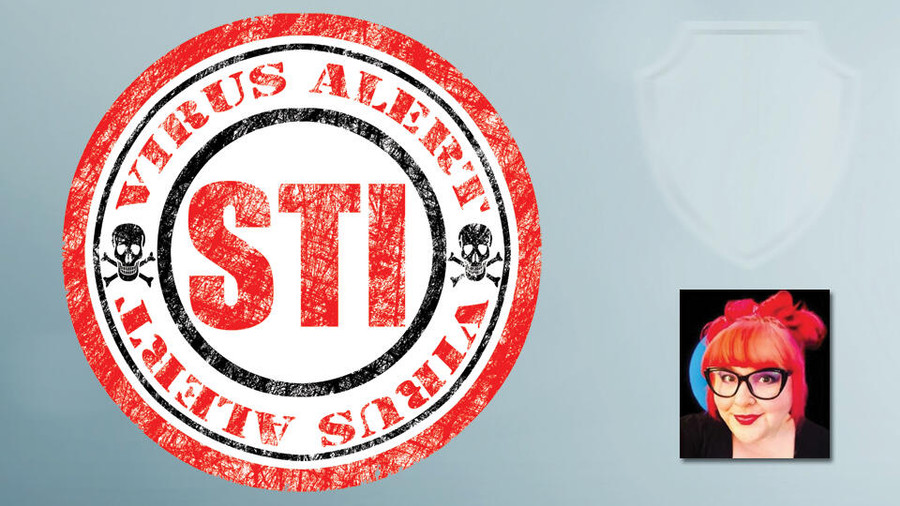Adult retail isn’t all fun and flirty games. We love helping folks navigate pleasure and desire for themselves and with their partners, but brick-and-mortar staff are also on the front lines for myriad educational opportunities — especially in April, which is Sexually Transmitted Infections Awareness Month.
Worldwide, there are an estimated 376 million new cases of curable STIs each year, according to the World Health Organization. In the United States, the Centers for Disease Control (CDC) estimates that one in five sexually active adults has an STI. The CDC currently recommends that sexually active adults test at least once every 12 months, and also test with every new sexual partner.
The reality, however, is that only a fraction of sexually active adults are proactively testing.
The reality, however, is that only a fraction of sexually active adults are proactively testing. With approximately 20% of American adults averaging more than three sexual partners per year, and growing numbers of people identifying as some flavor of nonmonogamous, it is more critical than ever to support sexual wellness and testing initiatives.
While it can be awkward to bring up the subject of STI testing in a sales-focused conversation — no one wants to be preached at! — there are still simple ways to support global sexual wellness on a local level, right in your store.
What Can We Do?
1. Display Informational Materials: Prominently display informational materials on sexual health and STI awareness in-store, on a bulletin board or table near the register. Also consider adding information about accessing abortion, reproductive health care and domestic/sexual violence services. Posting this information in fitting rooms or video booths can also help spread the word.
2. Partner with Local Health Care Providers: Establish partnerships with local clinics or health care providers to offer testing services in-store. Reach out to local nonprofit community-based health organizations like Planned Parenthood or Equitas. Your local grassroots abortion health advocates could be a great resource, too!
3. Host Educational Events: Organize workshops or seminars on safe sex practices, STI prevention and consent. Throw a “date night” event and invite people to shop deals and get tested together.
4. Offer Incentives for Testing: Provide discounts or incentives for customers who participate in testing events or present proof of recent testing.
5. Train Staff: Educate staff members on sexual health topics so they can provide accurate information and support to customers. Practice using affirming terminology; avoid using terms like “clean” or “dirty” in reference to test results.
6. Connect With Local Kink Groups and Play Spaces: Co-sponsor events with sex clubs and groups in the kink community. Help provide barrier protection to these spaces, or facilitate contact with appropriate vendors.
Devoting a small but prominent amount of physical space to sexual health support shows your shoppers that you care about more than just their dollars. That can also translate to more sales, since people want a judgment-free, supportive space, and this is a great way to provide it. You’re already their trusted source for pleasure, so this is the next logical step.
What’s in It for Us?
1. Enhanced Brand Reputation: By actively engaging in community health support initiatives, retailers can improve how consumers perceive them. Being associated with positive social impact can lead to increased customer loyalty, trust and goodwill, improving retention rates as well as attracting new customers who are drawn to brands that prioritize social responsibility. This can include health-conscious individuals, socially conscious consumers and those who value companies that give back to their communities.
2. Differentiation and Competitive Advantage: In an industry where competition is fierce, adult retailers that demonstrate a commitment to social responsibility stand out from their peers. By prioritizing community health support, a retailer can differentiate itself from competitors and gain a competitive edge in the market.
3. Increased Customer Engagement: Supporting community health initiatives and engaging with customers on health-related topics can foster a deeper connection with customers as it demonstrates a genuine concern for their well-being beyond mere product sales.
4. Mitigation of Public Health Risks: By promoting safe sex practices and sexual health education, adult retailers can contribute to the prevention of sexually transmitted infections and other health risks within the community. This can help reduce the burden on public health systems and health care providers, leading to cost savings for governments and taxpayers.
6. Employee Morale and Productivity: Engaging in community health support initiatives can boost employee morale and satisfaction by giving staff members a sense of connection to the community. Employees are also likely to be more productive, leading to improved business performance and profitability.
Our retail forces can make a big difference during STI Awareness Month. By empowering your staff, sharing information, encouraging testing and serving as a resource for both sexual pleasure and sexual health, you can inspire and help protect your community while bolstering your reputation and solidifying your business’ local roots in ways that can resonate for years to come. Make this April the start of something great!
Rin Musick is a 10-year adult retail veteran who has worked in every store position from sales associate to general manager. As a brand ambassador for Sportsheets, she brings her passion for end-user satisfaction to her mission of spreading the word about the company’s historic, current and future innovations in connecting romantic partners.








